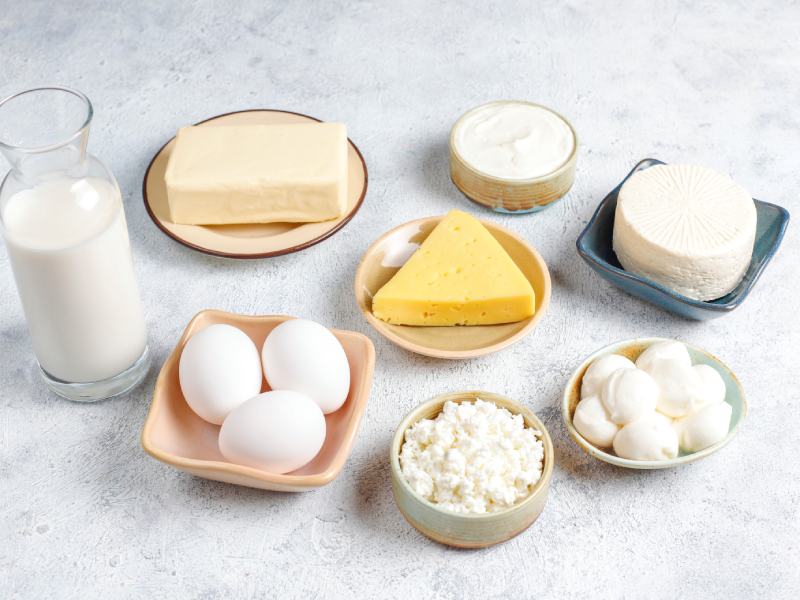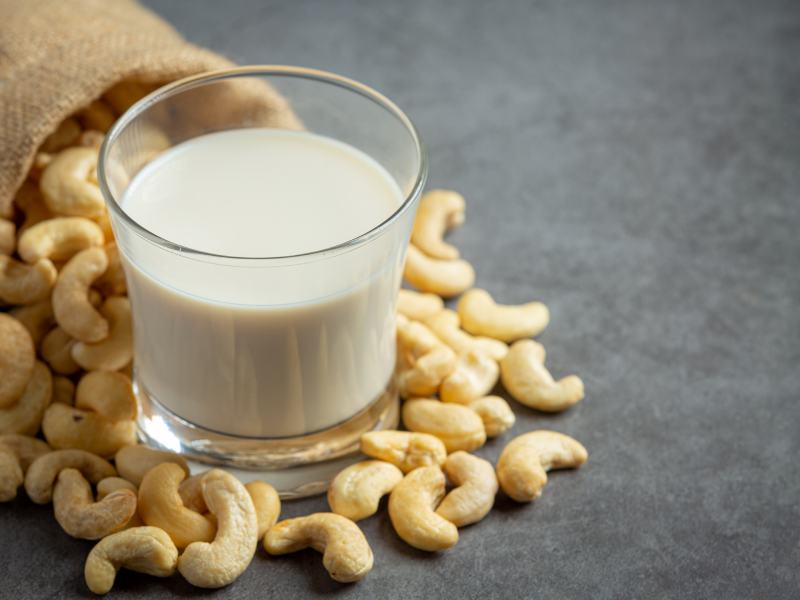Acne is a common skin disorder that can afflict anyone at any age. It can be caused by various factors, and one potential culprit that often comes up in discussions is dairy consumption. Many individuals claim that consuming dairy products, such as milk, cheese, and yogurt, leads to breakouts and worsens acne. In this article, we will explore the relationship between dairy and acne, and provide professional tips on how to prevent acne after eating dairy.
Understanding the Dairy-Acne Connection
Before delving into the question of whether dairy causes acne, it’s important to understand the complexity of acne development. Acne is a multifactorial condition influenced by various factors, including genetics, hormonal changes, diet, lifestyle, and skincare habits. While dairy consumption has been proposed as a potential contributor to acne, it’s crucial to recognize that acne is not solely caused by a single factor. Instead, it is often the result of a combination of factors that can differ from person to person. With this in mind, let’s explore the potential link between dairy and acne in more detail.
Does Dairy Cause Acne?
The question of whether dairy causes acne is a topic of ongoing debate among experts. While some studies have suggested a potential link between dairy consumption and acne, the evidence is not conclusive. It’s important to note that individual responses to dairy may vary, and not everyone who consumes dairy will experience acne breakouts.
The Role of Hormones
One possible explanation for the dairy-acne connection is the presence of hormones in dairy products. Milk, in particular, contains hormones that occur naturally in cows. These hormones can affect the hormone balance in our bodies when consumed, potentially triggering acne flare-ups in some individuals.

One explanation for the dairy-acne connection is the hormones in dairy products
Dairy hormones causing acne
When we consume dairy products, such as milk, cheese, or yogurt, these hormones may interact with our own hormonal system. This interaction can disrupt the delicate balance of hormones in our body, potentially leading to increased sebum production and clogged pores, which are known contributors to acne development. However, it’s important to keep in mind that the hormone levels in dairy are relatively low, and the impact on acne can vary from person to person.
Inflammation and Insulin Response
Another proposed mechanism for the dairy-acne relationship involves inflammation and insulin response. Some researchers believe that dairy consumption can lead to increased inflammation and insulin levels in the body, which may contribute to the development of acne.
When we consume dairy products, it can cause a spike in insulin levels due to the natural sugars present in milk. This spike in insulin triggers a series of hormonal and metabolic changes in our body, leading to increased sebum production, skin cell proliferation, and inflammation. These factors can contribute to the development of acne or worsen existing acne symptoms.
It’s worth noting that the relationship between dairy, inflammation, and insulin response is complex and may vary from person to person. Some individuals may be more susceptible to these effects, while others may not experience any significant changes in their acne symptoms after consuming dairy.
7 Tips to Prevent Acne After Eating Dairy
If you’re concerned about acne breakouts after consuming dairy products, implementing certain strategies can help minimize the potential effects. Consider incorporating the following professional tips into your routine to prevent acne after eating dairy and support clearer, healthier skin:
1. Moderation is Key
Rather than completely eliminating dairy from your diet, consider consuming it in moderation. Opt for smaller portions and choose dairy products that are lower in fat. This approach allows you to enjoy dairy while potentially reducing the likelihood of acne breakouts.
2. Monitor Your Dairy Intake
Keep track of your dairy consumption and pay attention to how your skin reacts. If you notice a pattern of breakouts after consuming dairy, it may be beneficial to reduce or eliminate it from your diet temporarily to assess the impact on your acne.
3. Try Dairy Alternatives
If you find that dairy consistently triggers acne breakouts, you can explore dairy alternatives. There are various plant-based milk options available, such as almond milk, soy milk, and oat milk, which can be used as substitutes in your favorite recipes.

Plant-based milk options can be a substitute for dairy.
Prevent acne after eating dairy
4. Consider Probiotics
Probiotics are beneficial bacteria that can help support a healthy gut and potentially improve skin conditions, including acne. Adding probiotic-rich foods like yogurt or kefir to your diet may help balance the gut microbiome, which could indirectly benefit your skin health. You can also take probiotic supplements after checking with a doctor.
5. Practice Stress Management
Stress can have a significant impact on our overall health, including the condition of our skin. High stress levels can potentially exacerbate acne breakouts. Implementing stress management techniques, such as regular exercise, mindfulness meditation, deep breathing exercises, or engaging in hobbies and activities you enjoy, can help reduce stress levels and promote healthier skin.
6. Maintain a Healthy Skincare Routine
Regardless of your dairy consumption, maintaining a consistent and effective skincare routine is essential for managing acne. Cleanse your skin twice daily with a gentle cleanser, exfoliate regularly to remove dead skin cells, and moisturize with non-comedogenic products to keep your skin hydrated without clogging pores.
7. Consult with a Dermatologist
If you’re struggling with persistent acne or are unsure about the role of dairy in your breakouts, it’s advisable to consult with a dermatologist. They can assess your specific condition, provide personalized recommendations, and prescribe topical or oral treatments if necessary.

With Remotederm online dermatology, you can access professional acne dermatologists anywhere in Canada
Remotederm online dermatology consultation
With Remotederm online dermatology consultation, you can access professional acne dermatologists anywhere in Canada within 12 hours, allowing you to receive expert guidance and personalized treatment recommendations tailored to your specific needs.
Conclusion
The relationship between dairy consumption and acne is complex and varies from person to person. While some individuals may experience acne breakouts after eating dairy, others may not notice any significant effects. It’s important to listen to your body, monitor your skin’s response, and make informed decisions about your dairy intake based on your own experiences.
Remember, maintaining a healthy skincare routine and consulting with a dermatologist can help you effectively manage acne, regardless of its potential connection to dairy. By implementing the professional tips mentioned in this article, you can take proactive steps to prevent acne after eating dairy and promote clearer, healthier skin.
FAQs
- Can dairy products with lower fat content reduce the likelihood of acne breakouts?
Opting for dairy products that are lower in fat and consuming them in moderation may potentially help minimize acne breakouts.
- Are there dairy alternatives that can be used as substitutes?
Yes, there are various plant-based milk options available, such as almond milk, soy milk, and oat milk, which can be used as substitutes for dairy.
- Can probiotics help in preventing acne after eating dairy?
Probiotics, found in foods like yogurt or kefir, can potentially improve skin conditions, including acne, by supporting a healthy gut. Consult with a healthcare professional before opting for probiotic supplements.
- Can dairy consumption disrupt the hormonal balance in our bodies?
Dairy products, particularly milk, contain hormones that can potentially affect the hormone balance in our bodies when consumed, which may contribute to acne flare-ups in some individuals.
- Does dairy consumption lead to increased inflammation and insulin levels?
Some researchers propose that dairy consumption can increase inflammation and insulin levels, which may contribute to the development or worsening of acne.
